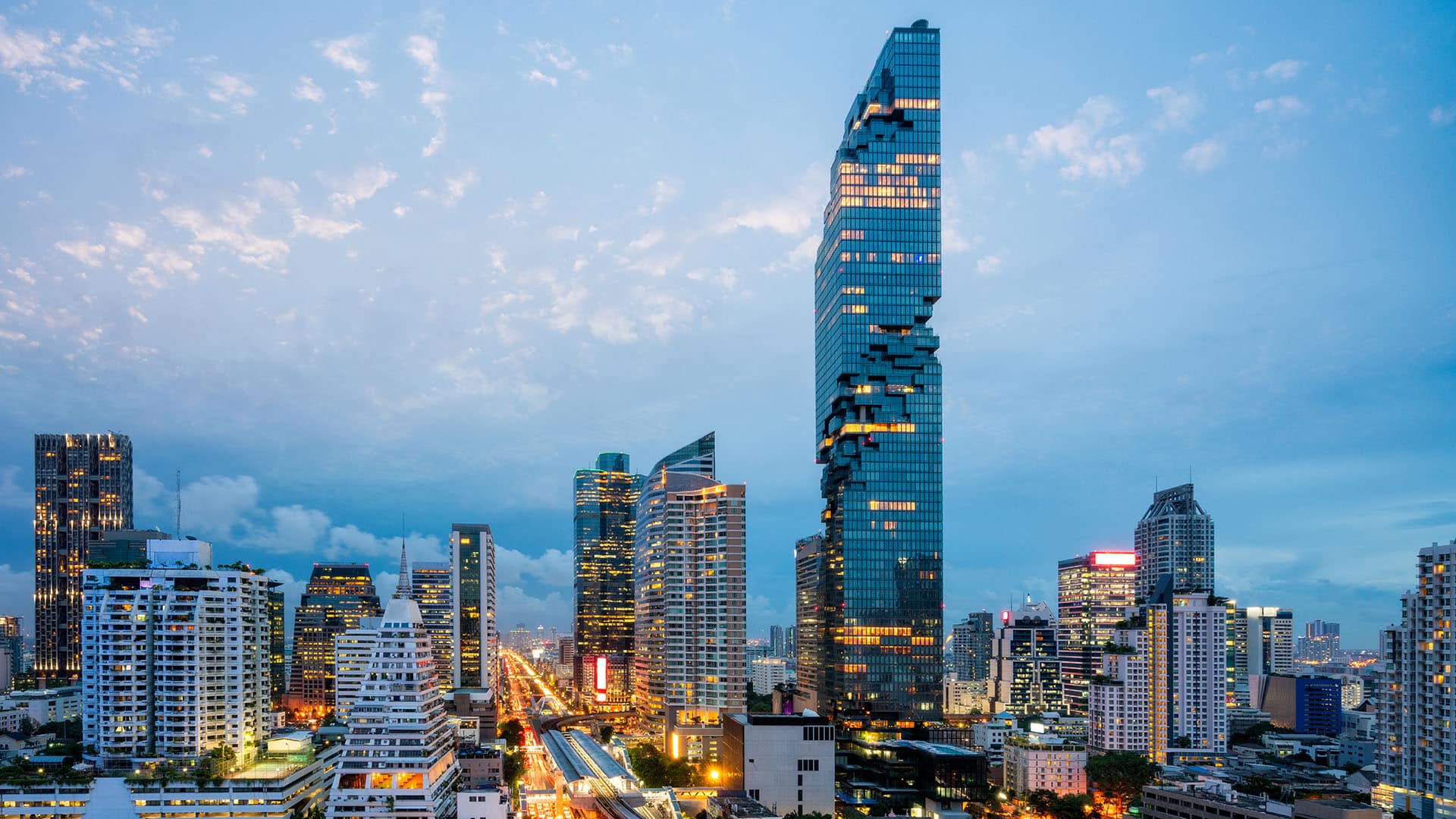Quick Guide
November – March
Considered peak season; heat and humidity are generally at their lowest.
April – October
The rainiest time of year (monsoon season starts in May and lasts through late September or even early November); however, you’ll also find the best deals on airfare and hotels.
Visas
U.S. citizens entering Thailand for fewer than 30 days do not require a visa. It’s advised that your passport be valid for at least six months beyond the date of your arrival and that you have proof of an onward/return ticket. For the most current visa information, visit the Royal Thai Embassy.
Money
Currency in Bangkok is the Thai baht. ATMs are widely available and credit cards accepted by most major businesses. Plan to carry some local cash for smaller shops, street vendors and markets. If you’re shopping for goods at local markets, plan to bargain before settling on a fair price.
Travel Health
Check with Thailand’s Department of Disease Control for the latest health safety information, including travel protocols and requirements like negative COVID-19 tests, quarantines, mask mandates and more in connection with COVID-19. Before traveling, research and prepare for what to do if you get sick while away.
Getting Here
Bangkok is served by Suvarnabhumi International Airport (BKK), which also handles some domestic flights. Don Mueang Airport (DMK) handles mainly domestic flights. Hualamphong Train Station is the city’s central train station.
Getting Around
Bangkok’s traffic is notoriously chaotic, but the good news is there’s no shortage of ways to get around the city: elevated skytrain (BTS), metro (MRT), taxis, túk-túks, river and canal boats, as well as buses.
Local Lingo
Thai is the official language in Bangkok, but many people working in tourist-centric businesses also speak English. Learn a few basic Thai phrases before your trip. Sa Wat Dee: Hello. Kawp Koon: Thank You. Chai / Mai Chai: Yes / No. Lah Gorn: Goodbye.
Must-Have App
BK Now; Grab; XE Currency; Line; Bangkok MRT; BTS Skytrain
Insider Tips
You’ll feel like you stepped back in time when you go off the beaten path to Tha Maharaj, an “old city” street market near the river with vendors selling fresh fruit and a mix of unexpected items — amulets, Chinese herbs, old-school Thai comic books, even false teeth — displayed as they would have been 100 years ago.
November – March
Considered peak season; heat and humidity are generally at their lowest.
April – October
The rainiest time of year (monsoon season starts in May and lasts through late September or even early November); however, you’ll also find the best deals on airfare and hotels.
Visas
U.S. citizens entering Thailand for fewer than 30 days do not require a visa. It’s advised that your passport be valid for at least six months beyond the date of your arrival and that you have proof of an onward/return ticket. For the most current visa information, visit the Royal Thai Embassy.
Money
Currency in Bangkok is the Thai baht. ATMs are widely available and credit cards accepted by most major businesses. Plan to carry some local cash for smaller shops, street vendors and markets. If you’re shopping for goods at local markets, plan to bargain before settling on a fair price.
Travel Health
Check with Thailand’s Department of Disease Control for the latest health safety information, including travel protocols and requirements like negative COVID-19 tests, quarantines, mask mandates and more in connection with COVID-19. Before traveling, research and prepare for what to do if you get sick while away.
Getting Here
Bangkok is served by Suvarnabhumi International Airport (BKK), which also handles some domestic flights. Don Mueang Airport (DMK) handles mainly domestic flights. Hualamphong Train Station is the city’s central train station.
Getting Around
Bangkok’s traffic is notoriously chaotic, but the good news is there’s no shortage of ways to get around the city: elevated skytrain (BTS), metro (MRT), taxis, túk-túks, river and canal boats, as well as buses.
Local Lingo
Thai is the official language in Bangkok, but many people working in tourist-centric businesses also speak English. Learn a few basic Thai phrases before your trip. Sa Wat Dee: Hello. Kawp Koon: Thank You. Chai / Mai Chai: Yes / No. Lah Gorn: Goodbye.
Must-Have App
BK Now; Grab; XE Currency; Line; Bangkok MRT; BTS Skytrain
Insider Tips
You’ll feel like you stepped back in time when you go off the beaten path to Tha Maharaj, an “old city” street market near the river with vendors selling fresh fruit and a mix of unexpected items — amulets, Chinese herbs, old-school Thai comic books, even false teeth — displayed as they would have been 100 years ago.
Did You Know?
What most of the world calls Bangkok, local people refer to as Krung Thep, a shortened version of the actual name, which loosely translates to “City of angels, great city of immortals, magnificent city of the nine gems, seat of the king, city of royal palaces, home of gods incarnate, erected by Vishvakarman at Indra’s behest.”
Marriott Bonvoy Offers & Promotions
Enjoy exclusive offers on hotels stays and experiences in Bangkok
Offers
Where to Stay
Book Over 30 Hotel Brands Around the World
6 Hotels
6












